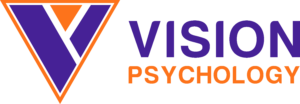At Vision Psychology, we understand that seeking therapy can be a significant step towards improving your mental health and well-being. We also recognize that attending in-person appointments in the … More... about Home Visits
Main Content
Find the right Clinician for you!
Click on the tab on the right for information on who will be the best match for your needs. We have 30+ clinical staff across 2 locations: Wishart and Loganholme.
Or you can book online 24/7 and you’ll be able to find the next available appointment at our clinics.
Book an appointment
Open 6 days a week 8am-8pm!
We have face-to-face, online & telephone consults available. Psychologists, Accredited MH Social Workers and Counsellors.
Our clinicians cover all ages, couples counselling, family counselling, assessments and treatment report needs. Book Now!
Call (07) 3088 5422
Fax (07) 3420 5824
Email reception@visionpsychology.com
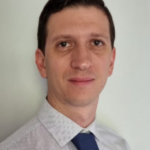
Alister Ballschmieter
Book Now B Psychology (Hons) My name is Alister, I am a registered psychologist and Board-Approved Supervisor with experience working with clients across the lifespan. I bring positive regard and … More... about Alister Ballschmieter

Linh Nguyen
B Psych (Hons), MClinPsych Book Now I am Phuong Linh, a psychologist at Vision and M1 Psychology. My educational background includes a Bachelor of Psychological Science (Hons), and a Master of … More... about Linh Nguyen

Peter Barta
B Beh. Sc, Grad Dip App Psych, M Business (Org. Beh.), Cert IV in Clin Hypnotherapy Book Now “A pragmatic, solutions focussed, client centred highly experienced Psychologist with life … More... about Peter Barta

Ashley Glennie
B Psych (Hons) Book Now Ashley Glennie is a General Psychologist originally from Canada. Ashley completed her Bachelor of Psychology (Honours) in Australia and is passionate about working with … More... about Ashley Glennie

Dr Yu Takizawa
PhD (Psych), M App Psych (Counselling), B Sc (Hons), M Couns, MAPS Dr Takizawa has recently completed his PhD in psychology. Dr Takizawa is an Australian-trained counselling psychologist with a … More... about Dr Yu Takizawa
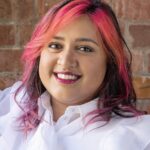
Pragnya Indugula
BSc in Psych, MSc in Child and Family Psych, PGDip in Health Sc (Couns), PGDip In Psych Prac Book Now Pragnya is a passionate Psychologist with a strong focus on empowerment, she works with … More... about Pragnya Indugula

Claire Pang
B Psych (Hons),Masters of Clin Psych. I am an Australian-trained clinical psychologist, experienced in treating a wide range of psychological problems in adults. I provide psychotherapy in English, … More... about Claire Pang

Dr David Ward
BSocWk, BA., Grad Dip (Couple Therapy), M.Couns., MPhil., PhD. I’ve been a therapist for over 25 years now and am an Accredited Mental Health Social Worker, having worked in government and … More... about Dr David Ward

Doctor & Hospital Referrals
Fax Referrals and Mental Health Care Plans to (07) 3420 5824. Vision and M1 Psychology provides a diverse range of Psychological and Counselling Services for doctors and specialists that would like … Read more about Doctor & Hospital Referrals
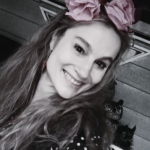
Susan Tambling
GradDip Psych, BA (Double Major Psych) Susan has been a Registered Psychologist since 2006 and a Family Report Writer since 2018. For almost 15 years, Susan has worked with families struggling with … More... about Susan Tambling

Lauren Otto
MA Clinical Psych Lauren Otto is a Psychologist from South Africa, who completed her Master’s training in Australia. She enjoys working with a diverse group of clients with a wide range of … More... about Lauren Otto

Christopher Lee
B Psych Science (Hons); Masters of Psych (Clinical); MAPS I am a clinical psychologist who specialises in trauma and with a keen interest in a wide range of psychological problems, as well as behavioural and relational issues in teenagers and young … More... about Christopher Lee

Nenad Bakaj
MHumServ (RehabCouns), BSocWk,DipAppSci (Comm&HumServ). Nenad is a Brisbane-based clinical counsellor and accredited mental health social worker, with specialist training in psychological … More... about Nenad Bakaj

Dr Pauline Baleta
Book Now MA Psychology (UJ) Cum Laude, PhD Psychology (UP), MAPS Clinical Psychologist Dr Pauline Baleta is from South Africa where she was a fully registered senior clinical psychologist for the … More... about Dr Pauline Baleta

Ania Harnden
BSocialWork, AMHSW, EMDR Therapist Ania, is a seasoned therapist and social worker with over 15 years of clinical experience across various age groups and cultural backgrounds. Experienced in trauma … More... about Ania Harnden

Willem van den Berg
B.SocSci (Psych & Criminology), B.SocSci (Hons) (Psy)M.Sc Clin Psych. Willem van den Berg is a Psychologist from South Africa, with almost 20 years of experience in providing psychotherapy to a … More... about Willem van den Berg
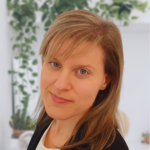
Katalin Mezei
BA (Hons) Psych & Crim, G. Dip Psych, MSc Health Psych I am a Provisional Psychologist now based in Brisbane, having completed my undergraduate and Master’s training in the United Kingdom. … More... about Katalin Mezei
Invest in Yourself Today and Pay Fortnightly to Suit your Budget!
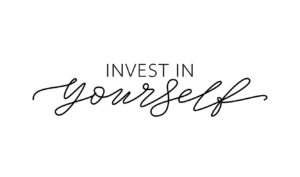
Flexible Payment Plans
Our team can assist you with flexible payment plans that are interest free. This exciting new option is now available to our clients. Speak with our admin staff at the clinic or over the phone. We cover psychology, counselling, psychiatry and assessments/reports. Key features include: Eligible clients can expect to have treatment paid immediately once the application has been processed … More... about Flexible Payment Plans
Dr Jan Philamon
PhD, BA (Hons) Psychology,D Teaching, JP (Qual), Qld, MAPS. Dr Jan is a registered Psychologist and member of the Australian Psychological Society (MAPS). Jan has an appointment available this week … More... about Dr Jan Philamon
Abbey Sawyer
MScMed (SRH), PostGradDipPsych, BPsychSci, BCrim, MAAPi. Abbey is a Registered Psychologist and Sexologist who does online/phone consultations only. She holds a Master of Science in Medicine … More... about Abbey Sawyer
Jim Adsett
BA Psych (Hons). Jim is a highly experienced psychologist, skilled at providing counselling and treatment for a range of issues. He brings a compassionate and practical attitude to therapy and has … More... about Jim Adsett
Sharyn Jones
B Psych (Hons), MTeach(Pri) Sharyn is a registered Psychologist who has spent a significant amount of time working in a variety of settings including schools, crisis helplines, employment services … More... about Sharyn Jones
Manouche Lang
B ScMed Engineering Ad Degree Clin Psychotherapy & Hypnotherapy, Counselling Book Now Unlock Your Potential with Comprehensive Therapeutic Support Are you seeking positive change and … More... about Manouche Lang
Catalina Nam
B Social Work (Hons), M Couns, AMHSW. Catalina migrated from South Korea to study a Bachelor of Social Work in 2003 and has lived here ever since. She started working as a Social Worker in 2007 in … More... about Catalina Nam
